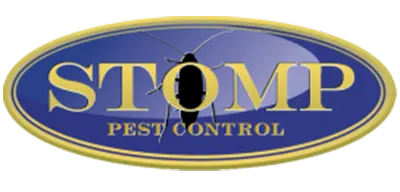Stinging insects are extremely common in North Carolina, and can be a problem if they take up residence in or around your home. Wasps and Hornets typically have aggressive personalities, and they will sting you if they feel threatened. Some reasons they may sting you are if you’re too close to their nest, startle them, or waive them away from food/drinks you are enjoying outside. Wasps are most commonly seen in North Carolina in June and July.
This guide on Wasps focuses on the different types of wasps present around residential areas in North Carolina, and when they are most commonly seen. Most people are concerned about wasps stinging them, however a small percentage of North Carolina wasps are dangerous stinging wasps. These wasps belong to the family Vespidae, also known as yellow jackets, paper wasps, and hornets.
Wasps and Hornets in NC
If you weren’t aware, hornets are classified as wasps but not all wasps are hornets. It is important to be able to distinguish them from each other.
Wasps
Wasps that aren’t classified as hornets are typically much smaller than hornets. The most common type of wasp that most North Carolina residents have had an unpleasant experience with is the yellow jacket. Wasps are solitary creatures, however yellow jackets are social, which many North Carolina residents may know by now. It may come as a surprise, but most wasps do not sting. With that said, it is better to assume they all sting in order to save yourself from the agonizing pain of a sting. Some wasps will build their nests out of paper in aerial locations, and others will build their nests either underground or at ground level.
Hornets
Hornets are unique because they are retractable insects that have stingers that can be used more than once. Hornets are social insects that prey on other insects as their food source. There are two types of Hornets in the United States; the European hornet and the brown hornet. Hornets are larger than wasps that do not classify as hornets, and measure at a length of 1 inch or longer.
What Attracts Wasps and Hornets to Your NC Home
Wasps and hornets are attracted to North Carolina homes because these homes are designed in a way that makes it convenient for them to build nests. Wasps and hornets prefer to build aerial nests, so they’re attracted to properties with eaves and overhangs. Also, porches with ceiling provide a convenient location for them to build nests.
If your North Carolina home is built with raw materials that attracts wasps and hornets, you can bet they will build a nest outside your home. Paper wasps use wood material to build their nests, so homes with wood piles outside will attract these wasps. Once wasps move into their nest, the queen will use wood to make the paper pulp.
Homes that have a large insect population or standing water pose a higher threat for wasp and hornet infestation because they provide them with a steady supply of food and water. Reducing the amount of insects in your North Carolina yard will reduce the chances of making your yard a home for stinging insects. Food and standing water in your yard will attract more insects which in turn will attract stinging insects like wasps and hornets.
Understanding the features of your home and the settings around it will help you determine if your home presents an opportunity for stinging insects to create their home.
The Threat of North Carolina Wasps and Hornets
The biggest threat wasps and hornets pose to humans is their ability to sting. Unlike bees, wasps are capable of stinging multiple times.
Wasp stingers release chemical toxins that cause pain and swelling. Most people will have a mild reaction, however some people can experience allergic reactions and will go into Anaphylactic shock. Symptoms of Anaphylactic shock will arise within a few minutes of being stung and can include:
- Low blood pressure
- Rapid pulse
- Difficulty breathing
- Wheezing
- Fainting
- Nausea
- Dizziness
- Vomiting
Allergic reactions to bee stings in general shouldn’t be taken lightly and should be considered as a medical emergency. If you or someone you know has been stung by a wasp and is experiencing the symptoms mentioned above, dial 911 immediately. Epinephrine injections are required to reverse the effects of an allergic reaction from a wasp sting. Without the proper medical attention, a wasp sting can be life threatening to an individual experiencing an allergic reaction.
Young children and pets may be at higher risk of getting stung by a wasp or hornet because they may not know how to avoid getting stung. Pets like dogs enjoy chasing wasps and hornets and may be stung in the process.
Stomp Pest Control Wasp and Bee Removal Services
Wasps and hornets pose health risks, such as allergic reactions from stings and the possibility of carrying diseases. If you are in need of a Raleigh bee and wasp exterminator, the experts at Stomp Pest Control are here to help! We’ve helped hundreds of Raleigh and surrounding area residents remove wasps and hornets from their homes and properties. Contact us today at (919) 231-3292 or use the form below.

